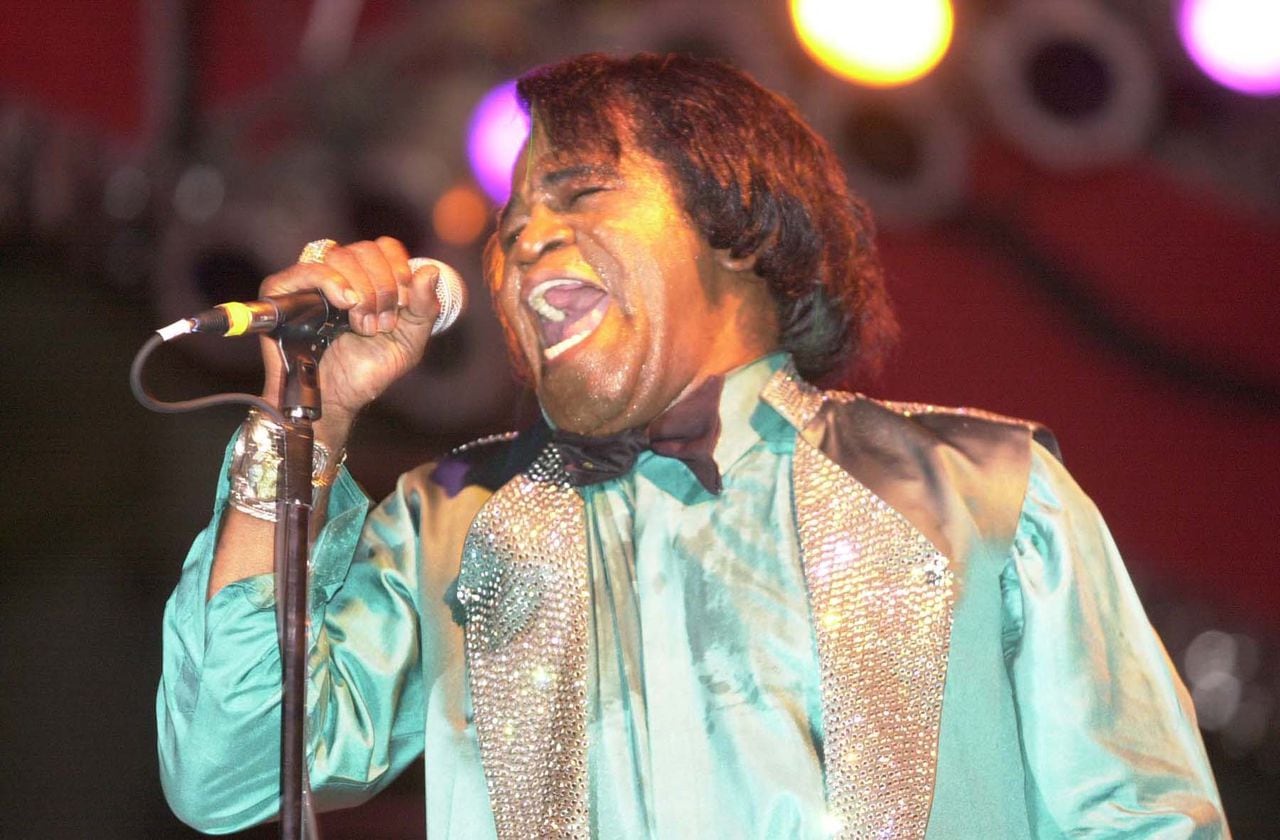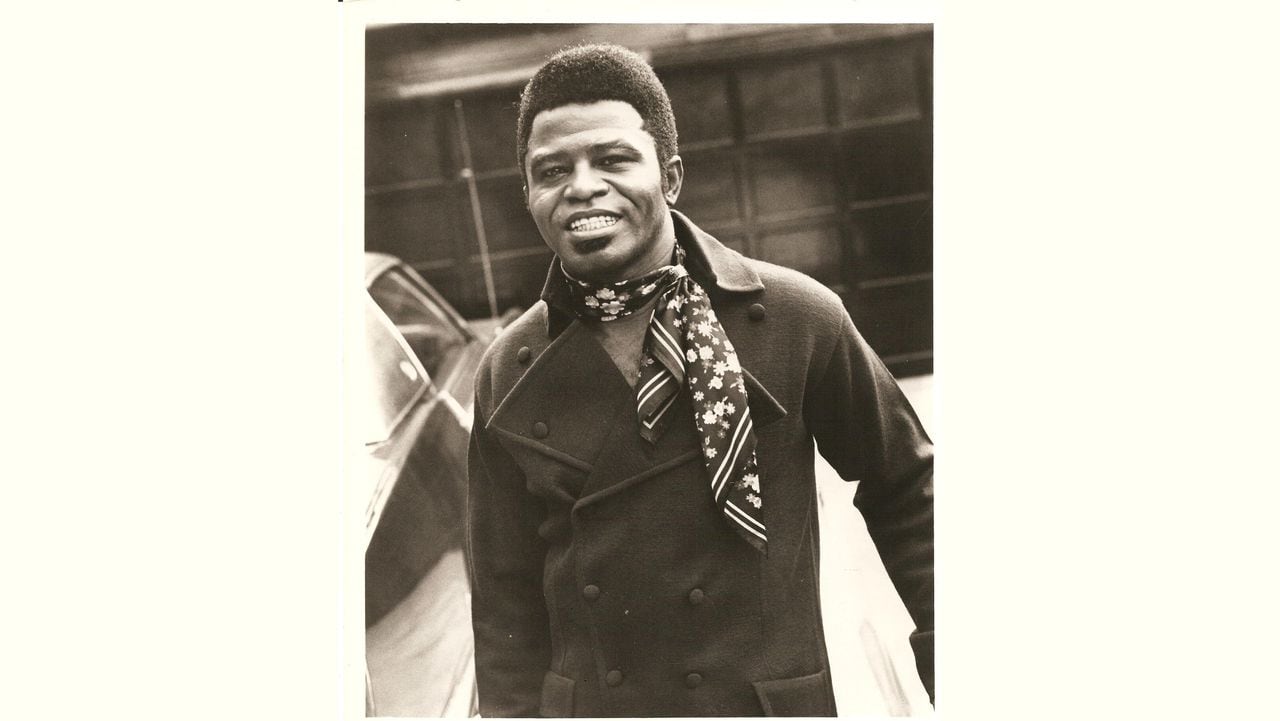Legendary soul singer has powerful new single, 18 years after his death
A new single by James Brown — the legendary singer, prolific songwriter and incendiary stage performer known as the “Godfather of Soul” — has been released to the public. The song, “We Got to Change,” comes to us about 54 years after it was recorded and 18 years after Brown’s death.
“We Got to Change,” a funky anthem powered by Brown’s distinctive vocals, made its debut on Feb. 16, courtesy of Republic/Universal Music Enterprises. The song — recorded on August 16, 1970, at Criteria Studios in Miami — has a strong social message, calling for people to come together, trust and love one another. Although indicative of Brown’s work, it languished in the vaults until now.
The 1970 studio sessions for “We Got to Change” included bassist Bootsy Collins and his brother, guitarist Phelps “Catfish” Collins, as well as drummer Clyde Stubblefield and singer Bobby Byrd, according to a press release.
“James Brown always leaned into the social tip,” Bootsy Collins, 72, said via the release. “He always was trying to keep the youngsters informed and the people informed on what’s going on. The new breed was coming in and certain things were going out. He loved to inform people on what was coming and what was going to be because he felt like he was part of it, and he was.”
Brown, a South Carolina native who in 2006 died at age 73, was a charismatic and prolific artist who influenced generations of musicians and listeners, via songs such as “Papa’s Got a Brand New Bag,” “I Got You (I Feel Good),” “Say It Loud – I’m Black and I’m Proud,” “Super Bad,” “Soul Power,” “Get Up Offa That Thing” and many more.
During a career that lasted more than 50 years, Brown released more than 50 studio albums and more than 100 singles, appeared in movies and on television, toured in tireless style and earned spots in the Rock & Roll Hall of Fame, the Songwriters Hall of Fame and more. Along with “Godfather of Soul,” his nicknames included the “Hardest-Working Man in Show Business,” “Mr. Dynamite” and “Soul Brother No. 1.”
James Brown, circa 1968, in a photo released by Republic/Universal Music Enterprises. Brown, a singer, songwriter, bandleader and charismatic stage performer, made an indelible impression on the music industry during his lifetime (1933-2006).(Courtesy of Republic/Universal Music Enterprises)
“We Got to Change” was released just a few days before a new documentary on Brown made its premiere on A&E. “James Brown: Say it Loud,” a four-hour docuseries, was broadcast this week in two installments on Monday and Tuesday, Feb. 19-20. All four hourlong episodes can be streamed online via A&E, and are available via other streaming services.
“‘James Brown: Say It Loud’ traces the incredible trajectory of Brown’s life and career from a seventh grade drop-out arrested and jailed at the age of 16 for breaking into a car in the Jim Crow-era South, to an entertainment legend whose groundbreaking talent and unique perspective catapulted him to become a cultural force,” the A&E website says.
The series includes footage of interviews and performances by Brown, as well as interviews with Mick Jagger, Questlove, Bootsy Collins, LL Cool J, the Rev. Al Sharpton and more.
Brown’s life and work have been featured in other movie and TV projects, including concert films, the 2014 documentary “Mr. Dynamite: The Rise of James Brown” and the 2014 film biopic “Get On Up,” starring Chadwick Boseman.
Brown also had a history of performances in Alabama, including appearances in 1992 and 2000 at Birmingham’s City Stages festival. According to The Birmingham News, Brown caused quite a stir the afternoon before his headlining set at the 2000 City Stages, emerging from nearby Boutwell Auditorium for a sound check that surprised and pleased observant fans, including a vendor on scene.
As reported by Joseph Bryant: ”I came up to him and said, ‘Godfather,’ and he said, ‘Ya,”’ said 59-year-old vendor John Wicker, who could not quit smiling over his brief encounter. “I did my James Brown split, and on his way back he hit a little step for me.”

James Brown was a headliner at Birmingham’s City Stages festival in 2000. performing on the Coca-Cola Classic Stage.(AL.com file photo/Nick Nunnally)
Brown also performed a memorable 1975 show at The Plush Horse in Huntsville. “The now-defunct Plush Horse was a circular-shaped, glass-lined 750-person-capacity club, and on one night in 1975 The Godfather of Soul tore that place down,” Matt Wake said in a story for AL.com. “Decked out in bellbottoms and sequins, Brown and his band performed such songs as his then-current hit ‘Get Up Offa That Thing.’”
Brown had another important connection to the state: Birmingham native Danny Ray was his longtime emcee, valet, costumer and “cape man.” For more than 45 years, Ray would rush on stage to wrap Brown in one of his trademark capes when the sweat-drenched artist would collapse in feigned grief during the song “Please, Please, Please.”
